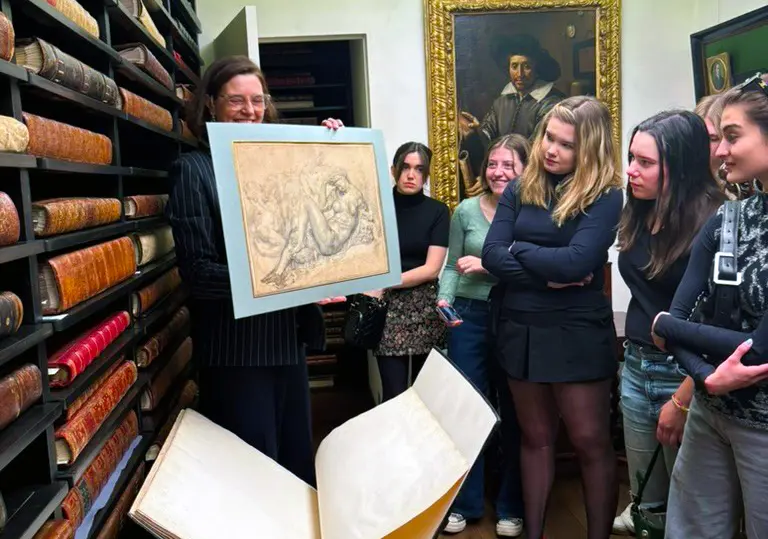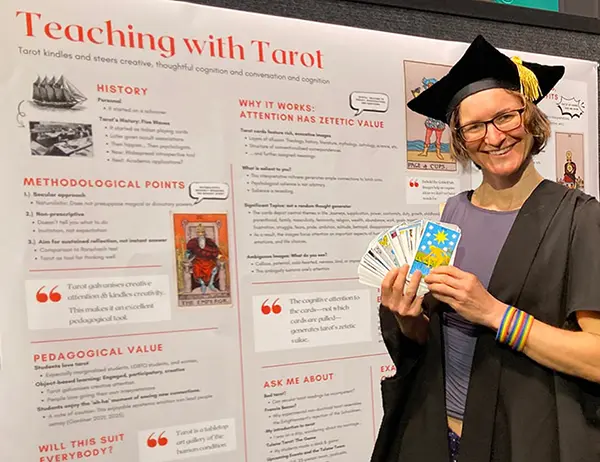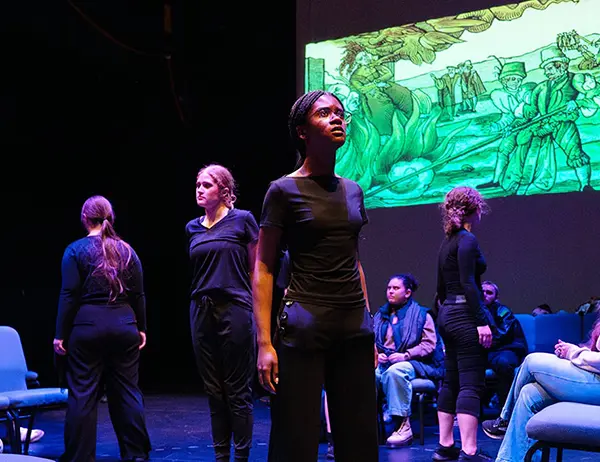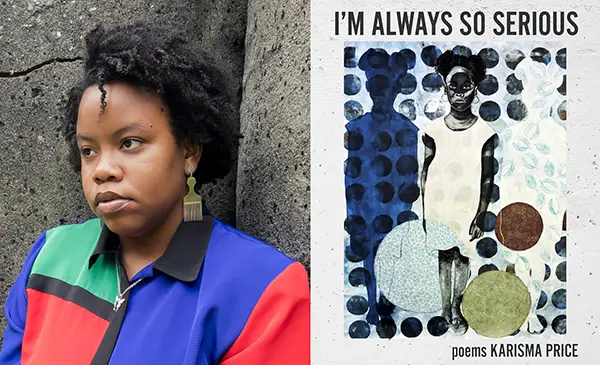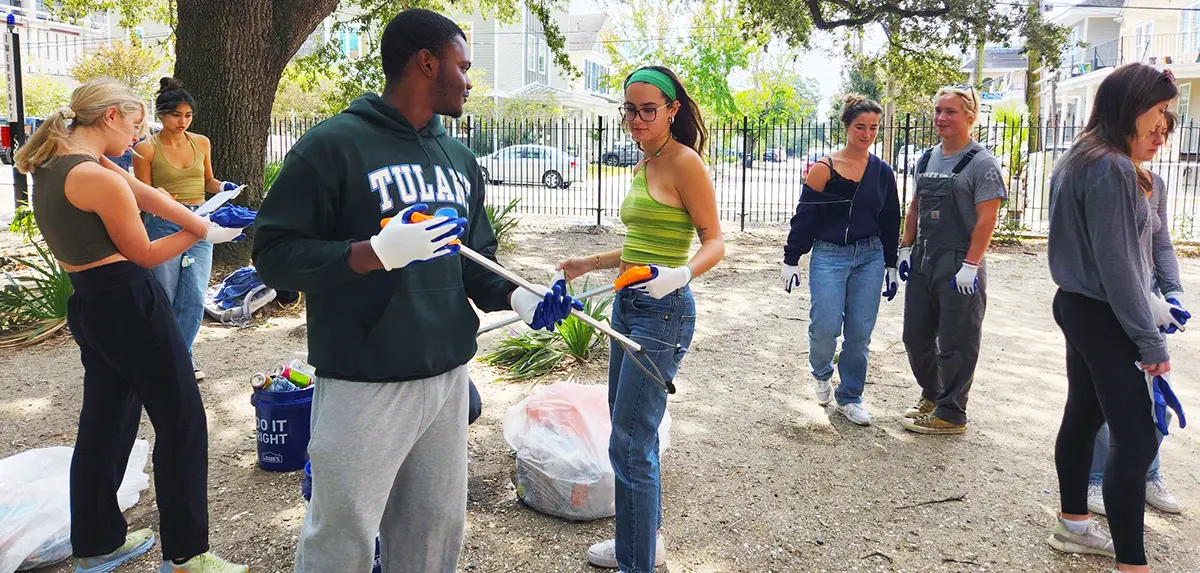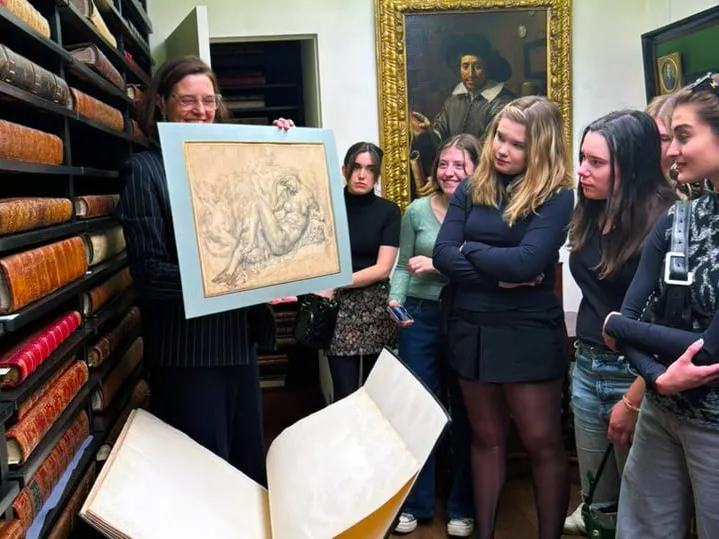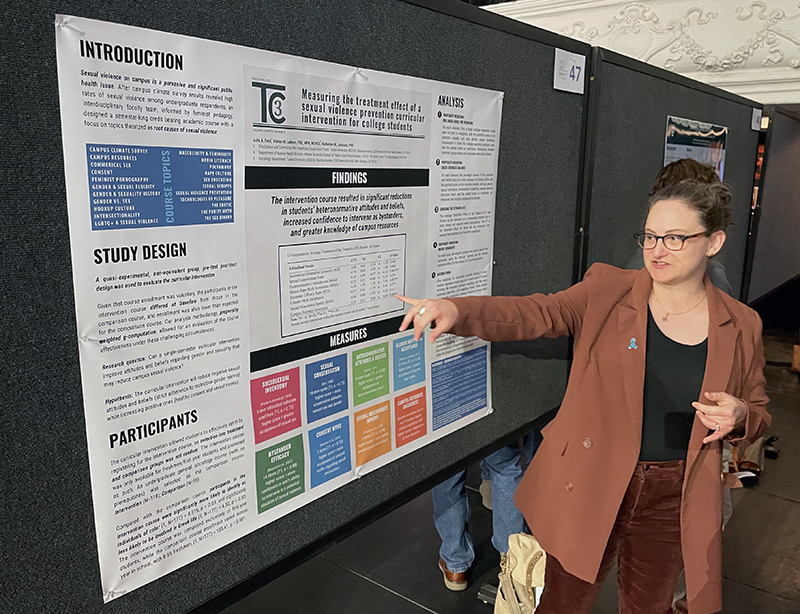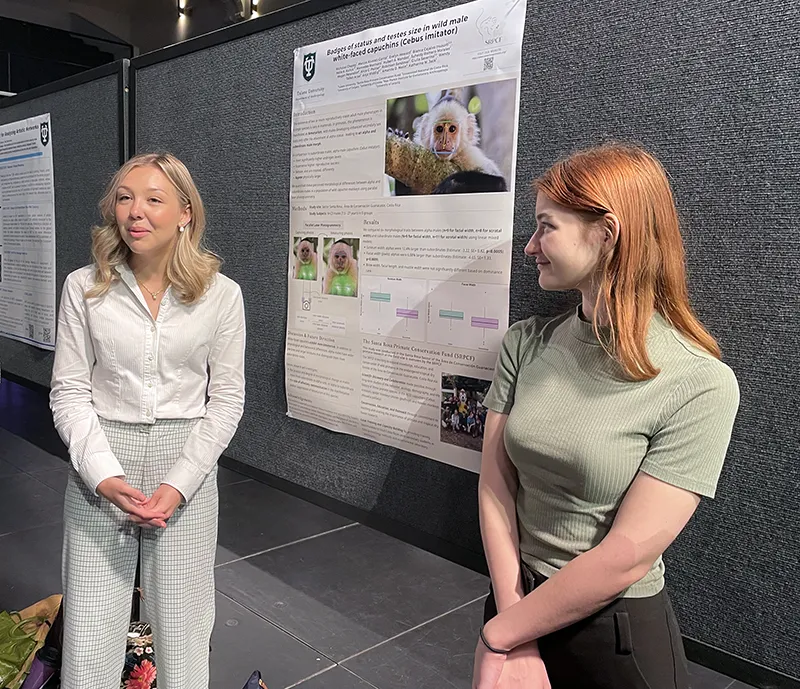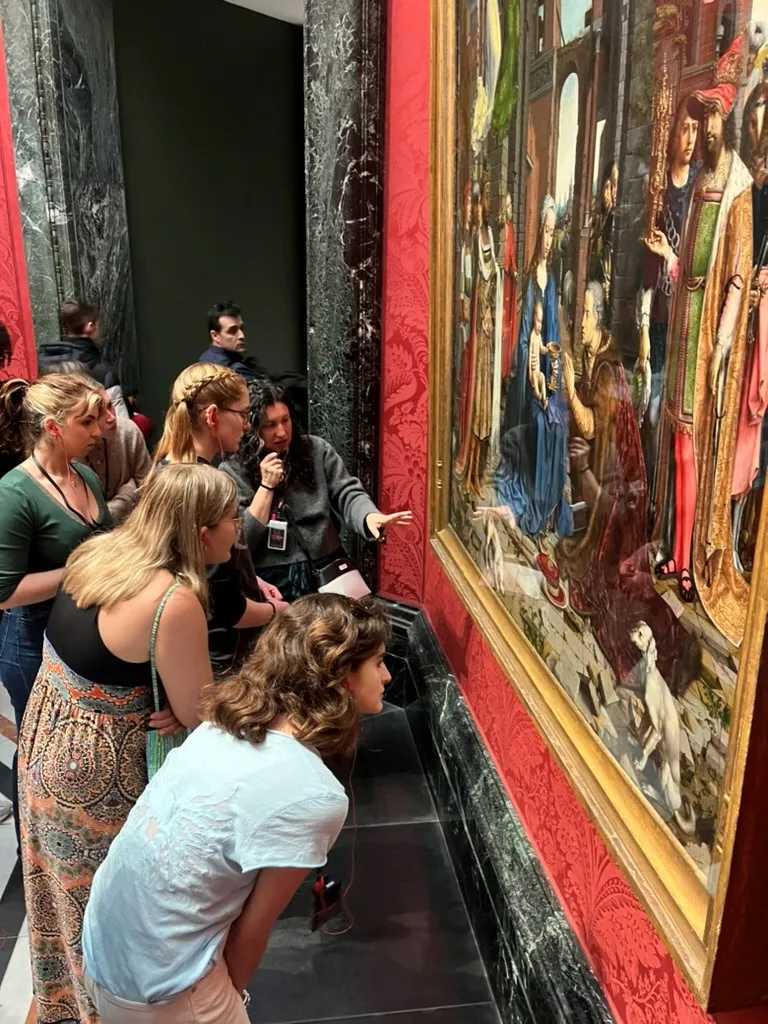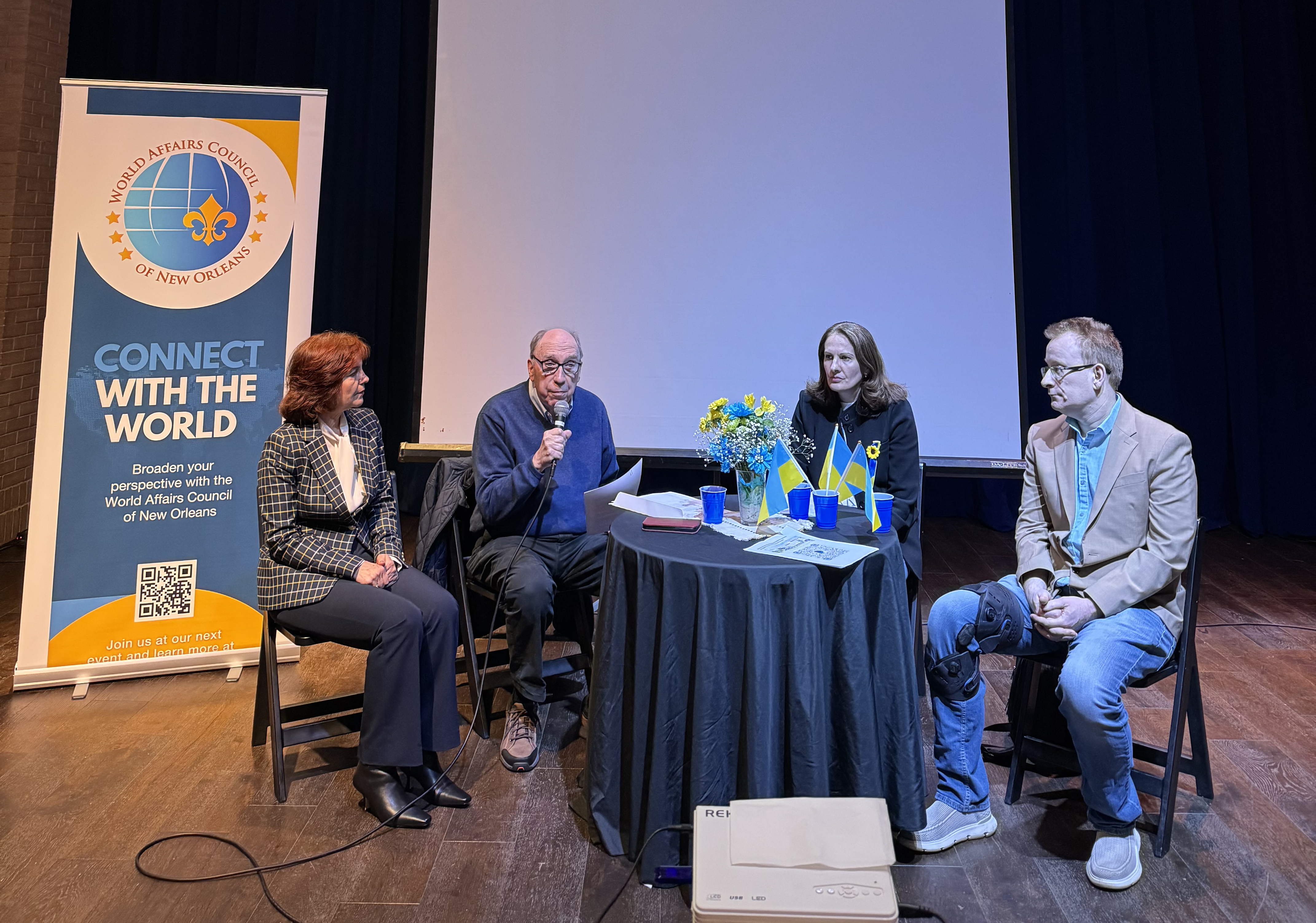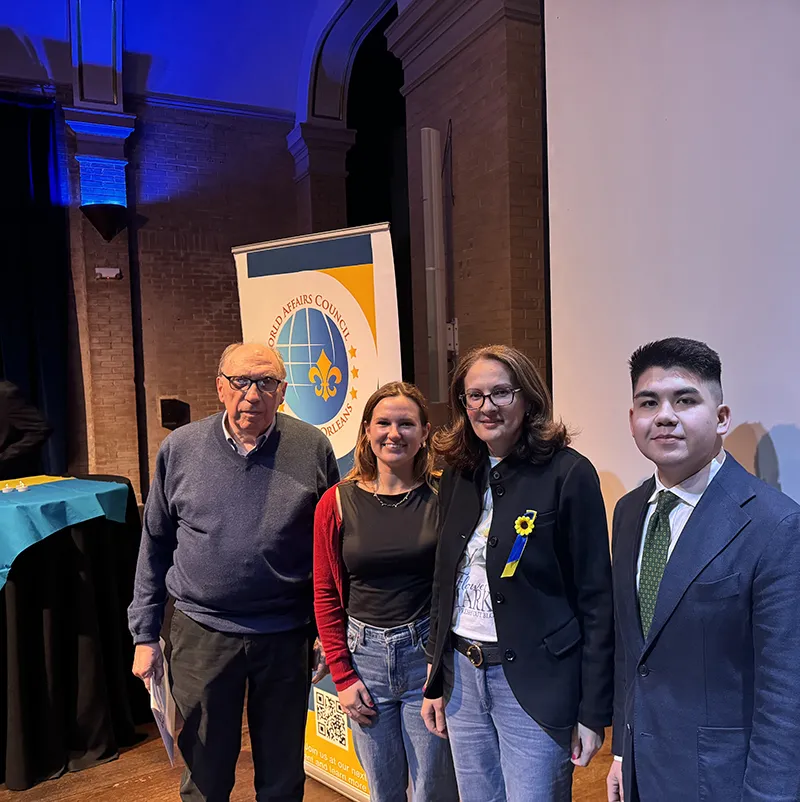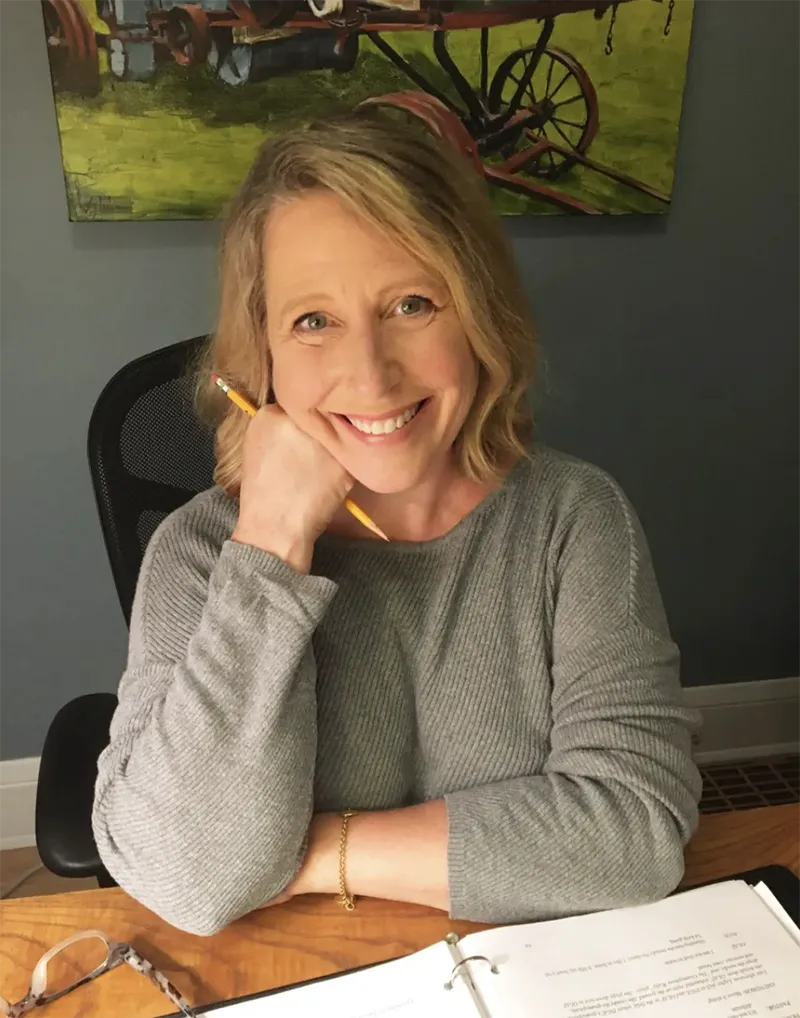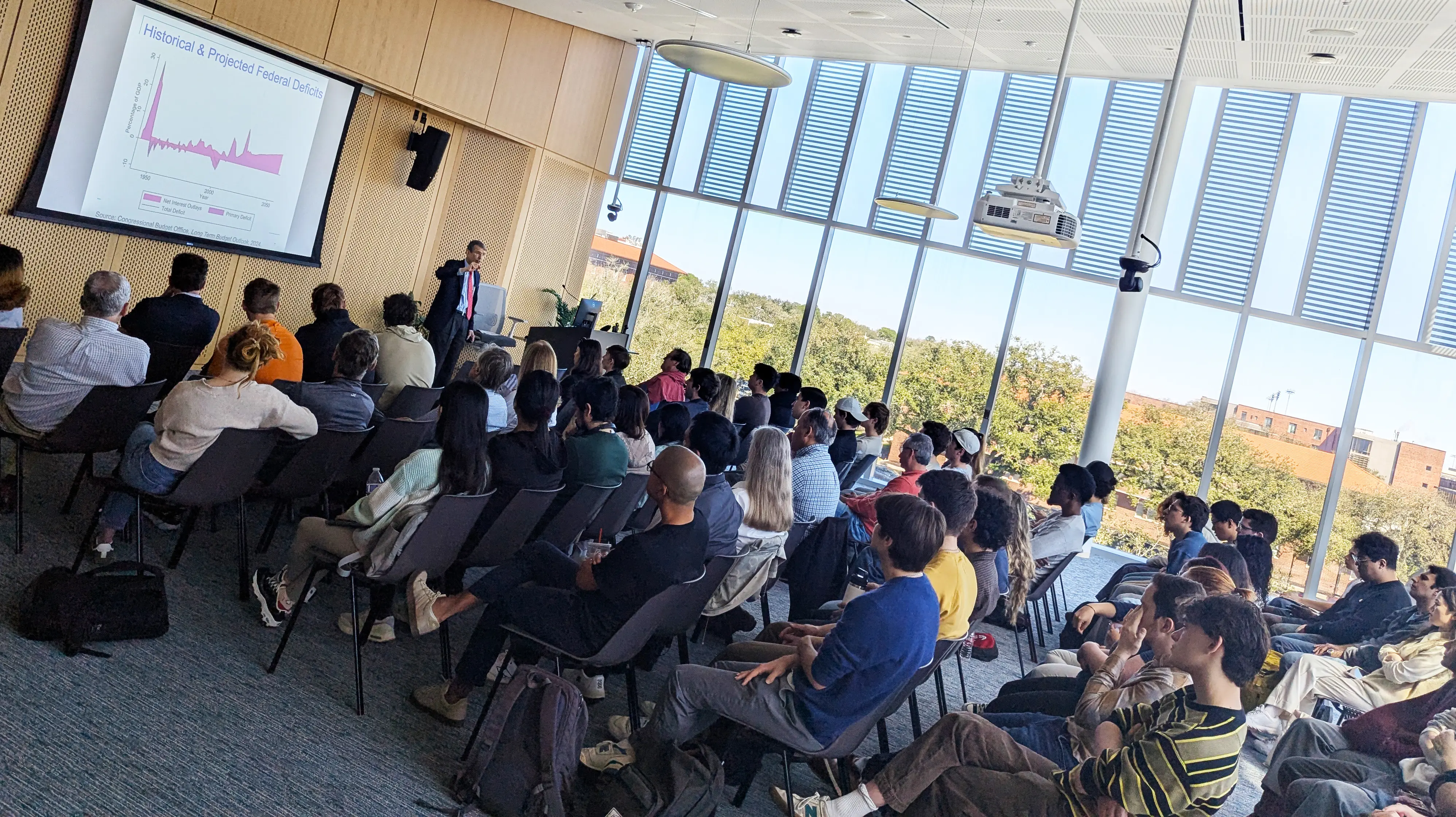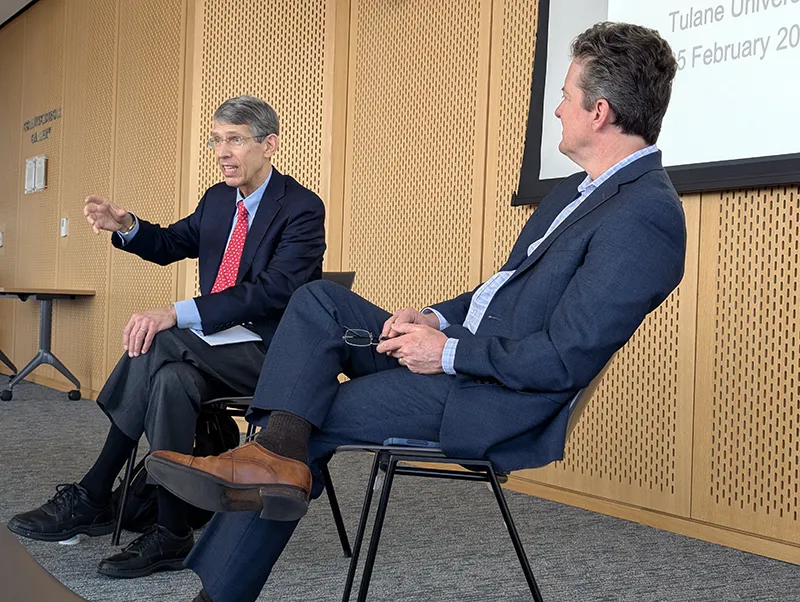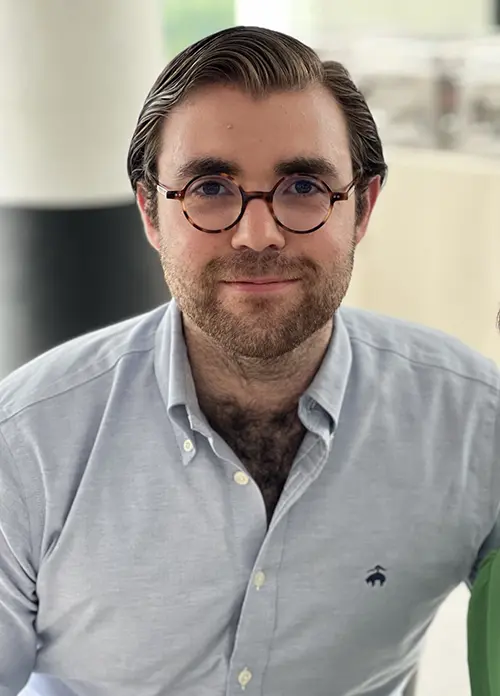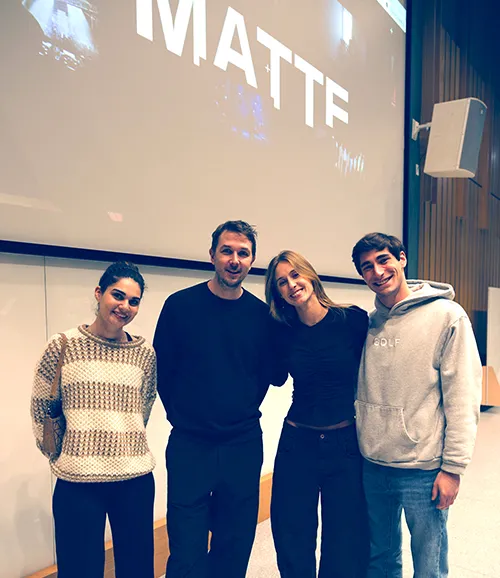Tulane University Theatre & Dance students had the special opportunity to workshop new theatre as they rehearsed Prick, an ensemble-based play centered around the Scottish Witch Trials, which began in the 1560s and continued for more than a century. To make the experience even more unique, the cast built a chorus of voices and distinct characters under the guidance of Associate Professor Amy Chaffee, alongside playwright Laurie Flanigan-Hegge, giving students the opportunity to learn what it was like to work with a dynamic script. Flanigan-Hegge listened in on various Zoom rehearsals and readings, made edits in real-time, and even traveled to New Orleans to watch the production’s American premiere.
Before the show on Saturday, February 22, student Assistant Directors Sofia Severson (SLA ‘27) and Grace Harmon Graugnard (SLA ‘21, SoPA ‘26) spoke with Flanigan-Hegge to get her insight on the play’s creation. As assistant directors, Sofia and Grace developed a personal stake in the stories of the accused women presented in Prick. Their position brought about relentless pursuit of artistic goals, similar to Flanigan-Hegge’s goals in writing the play, to highlight an era of history that speaks to the treatment of women as a society and to reckon with how much — or how little — treatment of women has changed across centuries. As the play's song "Today / Today" suggests, anachronistic elements are woven into the story that invite the audience to draw comparisons between the era of the witch trials and contemporary society.
Grace: When did you first hear of the Scottish Witch Trials?
Flanigan-Hegge: That is a really great question. I was asked to write this piece by an American graduate student getting her M.F.A. at Edinburgh Napier University. She needed a thesis project and wanted to work on an original play. She had been on a witch tour [in Edinburgh], and everywhere she looked, she was seeing what we call the ‘witch kitsch’ that was going on, but couldn't really get into the main story.
In 2022, the “Witches of Scotland” campaign kicked off on International Women’s Day. The campaign is essentially these two really brilliant women, Zoe Venditozzi and Claire Mitchell, and they are working for three things in Scotland: a pardon for all those accused, an apology from the government (which they received from Nicola Sturgeon on International Women's Day 2022), and a national memorial.
They just released a new tartan that is designed specifically to be a living memorial. I don't know the details of the threads and whatnot, but it's really interesting. The count of threads, the color of threads, the way they’re spaced out, it’s all related to the long arc of the Scottish witch trials.
Grace: Was there a particular detail or story that inspired the play itself, or was it a slow process of research before coming to the play?
Flanigan-Hegge: I started listening to the “Witches of Scotland” podcast, and with each episode, I was connecting dots. There's a Wikimedian by the name of Ewan McAndrew, and he put out an online database of all the names of the known accused. People started going into this online database and looking at the records for witches in their community. There’s this huge boom of research around specific women.
Sofia: The play premiered at the 2023 Edinburgh Fringe Festival, which is one of the biggest theatre festivals in the world. Have you noticed any differences in the energy and reception of the play here at Tulane compared to the reception at Fringe?
Flanigan-Hegge: I am still learning what the reception is here, and it's a brilliant opportunity for me to find out what this play means to an American audience. I think there are subtle things. My approach is possibly less surprising to an American audience than it might be to a Scottish audience.
I can say that I’m very curious to know what you think, how you respond to this material, and especially the anachronistic aspects of it. This show will hopefully have more American productions, and everything that Amy has done in her laboratory with these students has just been so informative for me. And since that Edinburgh production, I have done some rewrites in collaboration with Amy and with the student cast.
Sofia: Within the play, there are a lot of different stories that are told, and a lot of different characters portrayed. Is there a story or detail that you wish you could have fit into the play?
Flanigan-Hegge: Well, this might be where some of the questions about an American audience versus a Scottish audience come into play. As a writer, working on this piece when I did it for the Fringe, compared to working on the piece in February 2024 in America, my voice and my perspective — what I want to say, how I want to feel, what I want to express — might be a little hotter. And there's one specific thing I would add that I don't want to tell you because I don't want to give it away. It comes at the end of the play.
Grace: Do you see Prick more as a living script or a living document that changes with its ensemble? How do you hope to see the play change and grow in the future?
Flanigan-Hegge: For a playwright, it’s often harder to get a second production than it is to get a first. When I wrote this piece, I was having to fight for my vision a little bit in ways that distance makes difficult. It was a process of discovery with this company that was across the ocean.
I knew Prick was coming to Tulane and that Amy would have her own group of students. I felt very strongly that we could rebuild this production with her company. The cast is larger, so a lot of the choral and shared vocal elements were either rewritten or re-edited to fit this cast.
I hope that eventually, I learn enough for the play to become solid enough to be published and licensed, but I would still like to invite any director to create their own version of it. When you're working on a play with a living playwright, if there's something you need to discuss, you should just email them and ask.
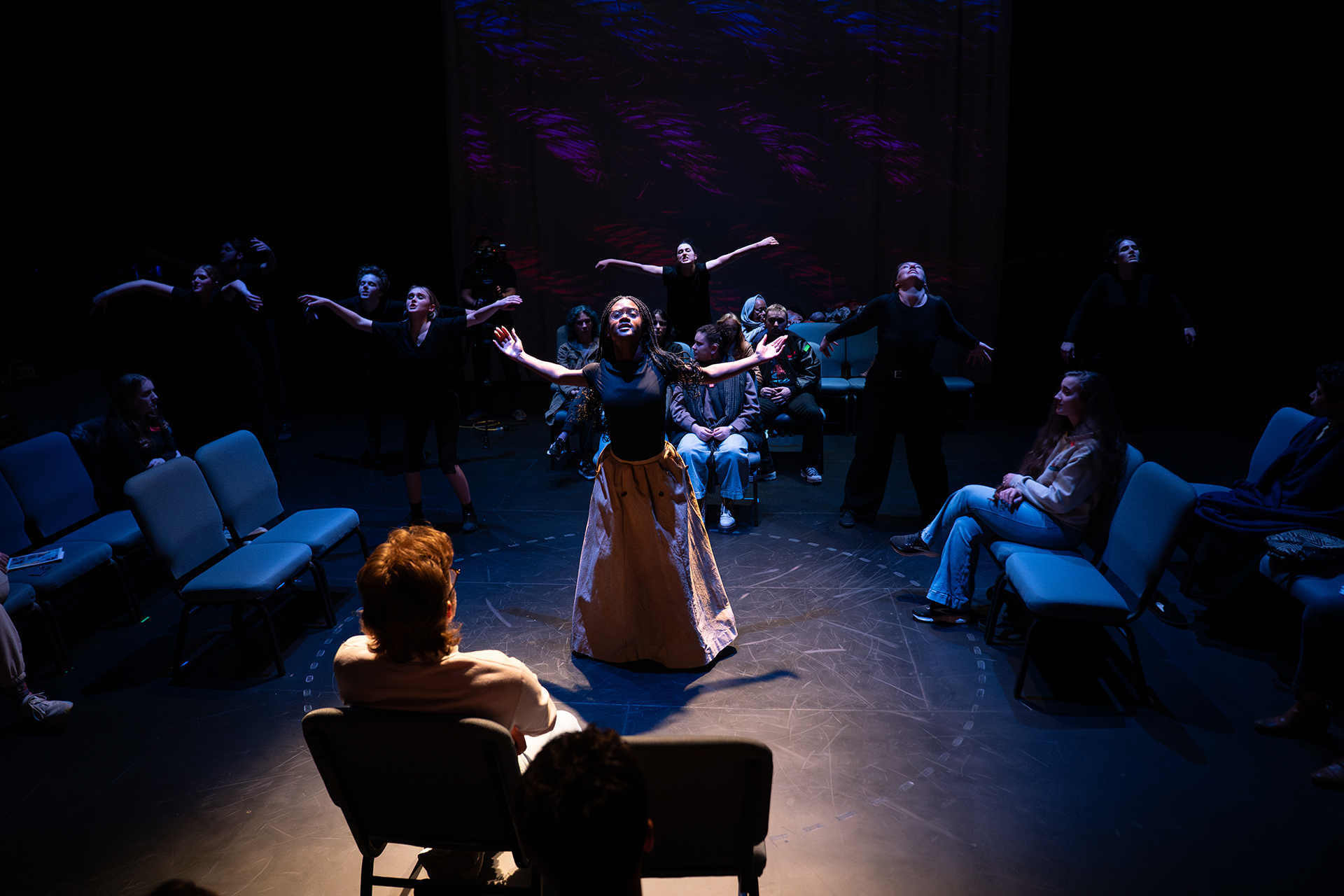
Students perform the original play, Prick, in Tulane’s Lupin Theatre.

